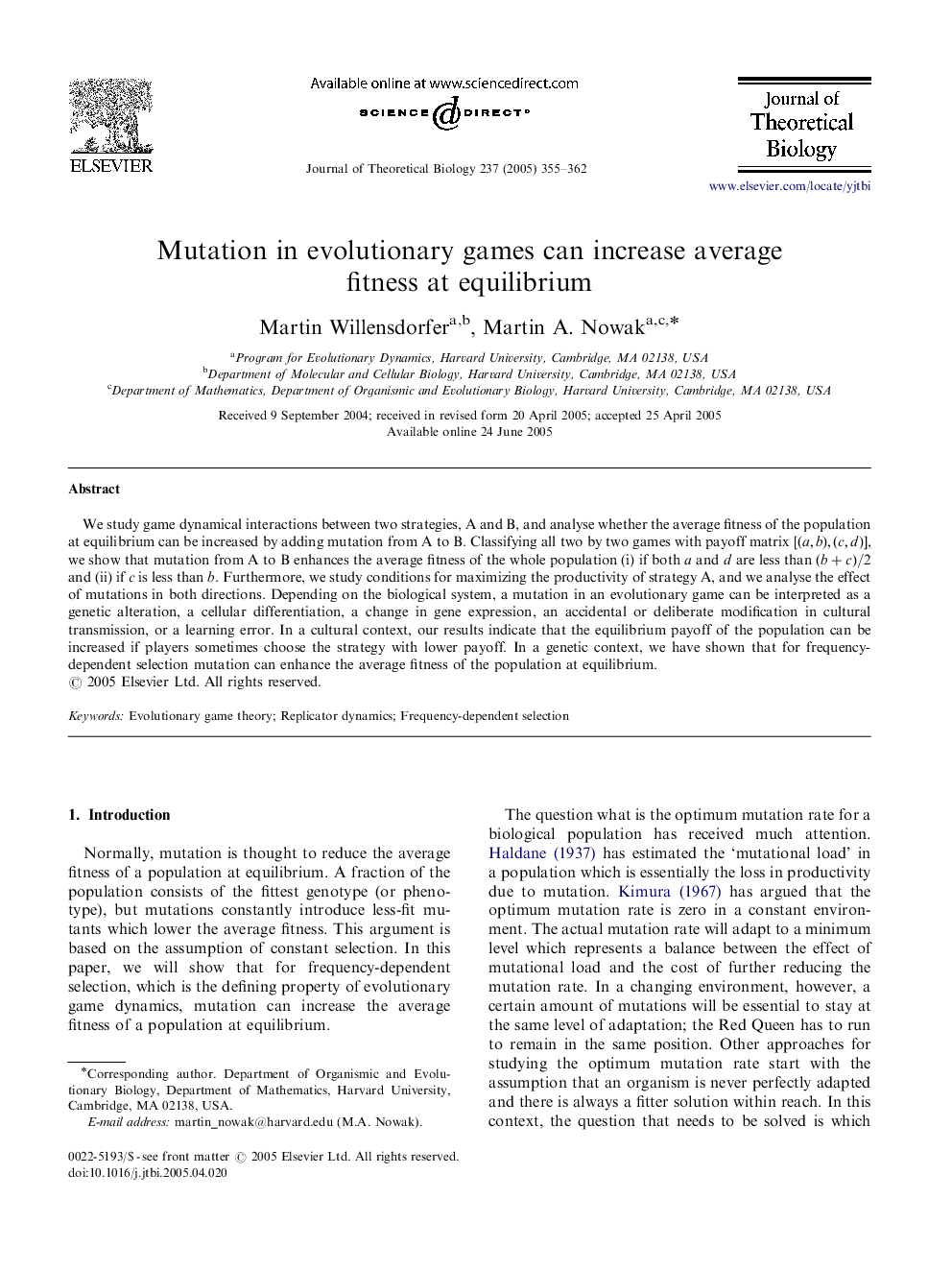| Article ID | Journal | Published Year | Pages | File Type |
|---|---|---|---|---|
| 9469582 | Journal of Theoretical Biology | 2005 | 8 Pages |
Abstract
We study game dynamical interactions between two strategies, A and B, and analyse whether the average fitness of the population at equilibrium can be increased by adding mutation from A to B. Classifying all two by two games with payoff matrix [(a,b),(c,d)], we show that mutation from A to B enhances the average fitness of the whole population (i) if both a and d are less than (b+c)/2 and (ii) if c is less than b. Furthermore, we study conditions for maximizing the productivity of strategy A, and we analyse the effect of mutations in both directions. Depending on the biological system, a mutation in an evolutionary game can be interpreted as a genetic alteration, a cellular differentiation, a change in gene expression, an accidental or deliberate modification in cultural transmission, or a learning error. In a cultural context, our results indicate that the equilibrium payoff of the population can be increased if players sometimes choose the strategy with lower payoff. In a genetic context, we have shown that for frequency-dependent selection mutation can enhance the average fitness of the population at equilibrium.
Related Topics
Life Sciences
Agricultural and Biological Sciences
Agricultural and Biological Sciences (General)
Authors
Martin Willensdorfer, Martin A. Nowak,
